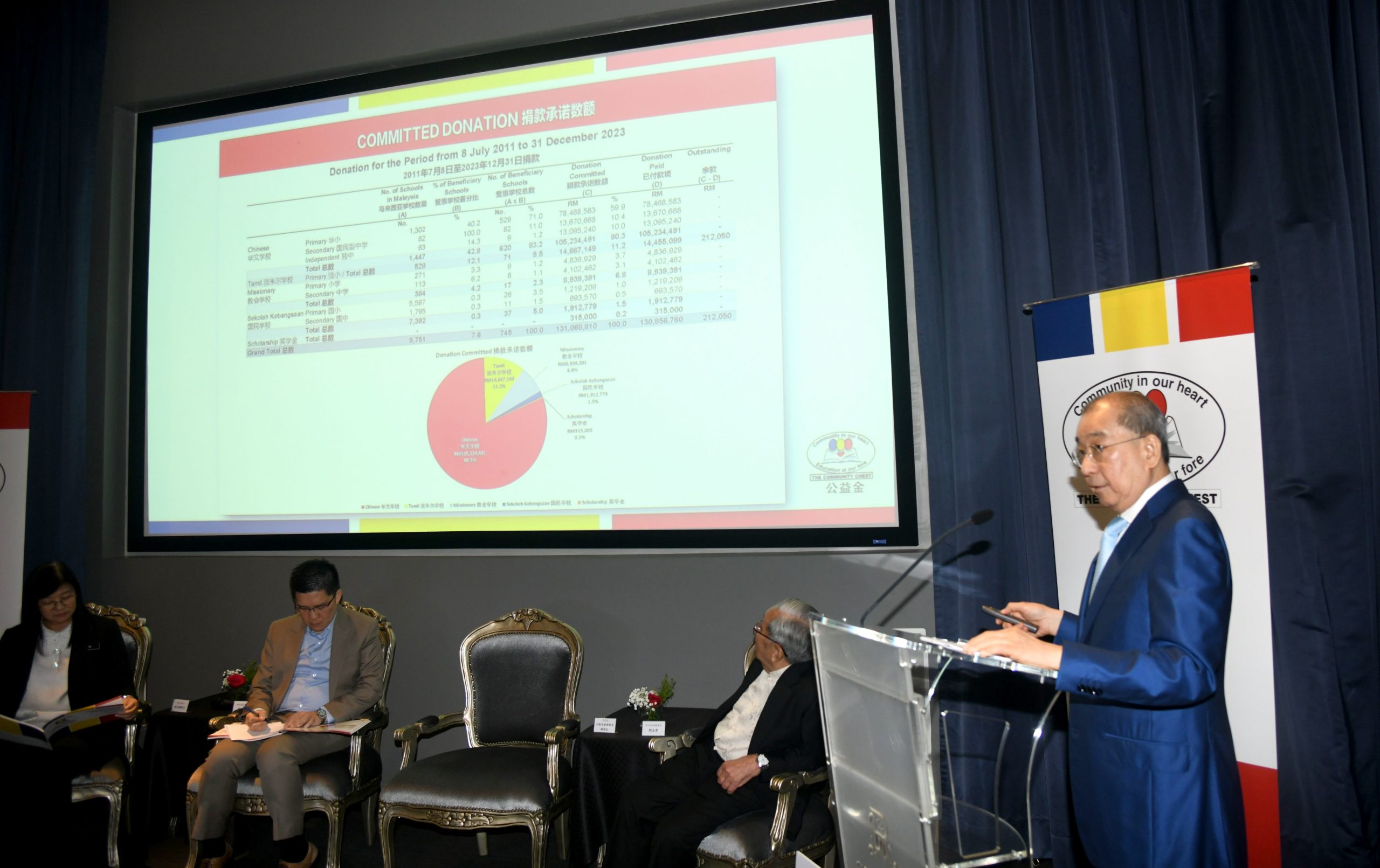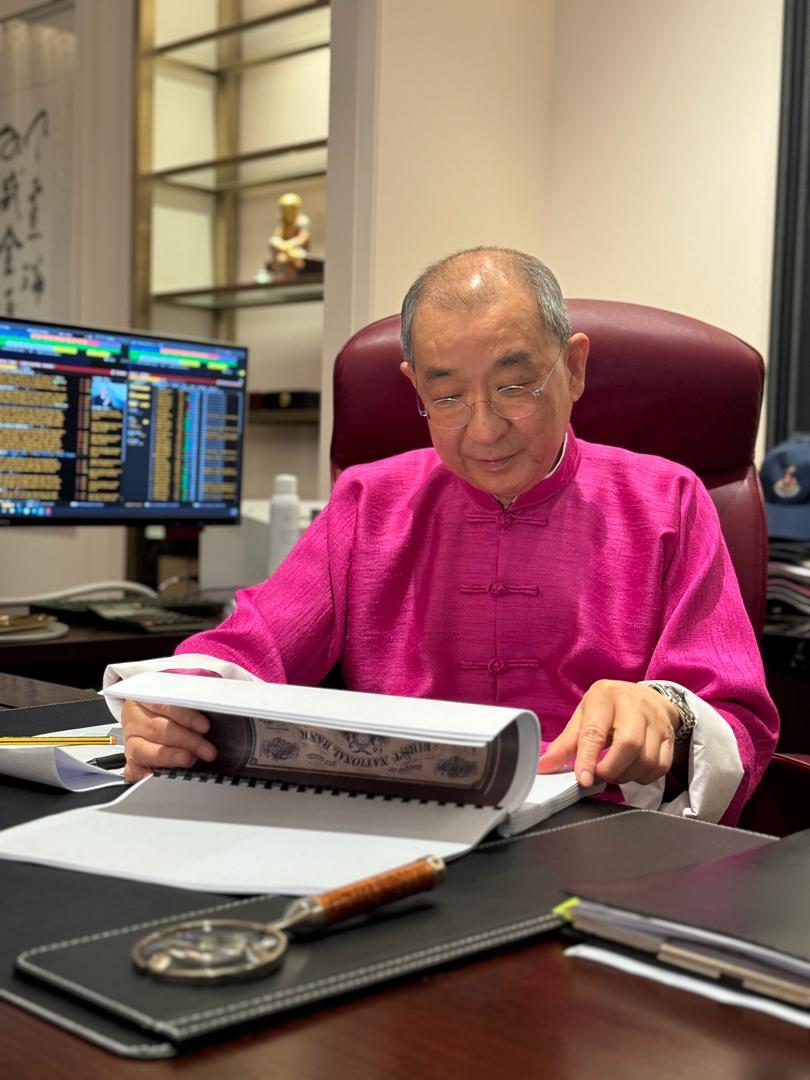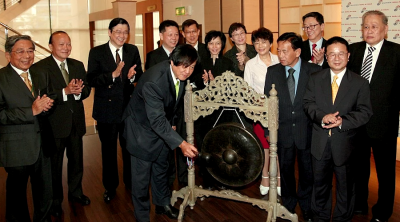
KUALA LUMPUR: Community Chest will provide a subsidy for the first time for SMKJs that hire temporary Chinese teachers to ensure the smooth teaching of Chinese and to avoid discontinuity.
The founding members and permanent trustee of Community Chest, Tan Sri Chua Ma Yu, explained the reasons behind when interviewed by the Sin Chew Daily.
He said, at present SMJKs are in great need of hiring temporary Chinese teachers to fill the vacancies of full-time teachers. The Ministry of Education has reached a consensus with the school to hire temporary teachers as a short-term solution to the shortage of teachers.
Fail to Remedy Might Affect Registration for SPM Chinese Paper
He pointed out that there is a shortage of Chinese language teachers in SMJKs, if no action is taken to hire temporary teachers, it will lead to interruptions in the teaching process and affect students’ registration for the Sijil Pelajaran Malaysia (SPM) Chinese paper, as well as indirectly affect the number of people teaching Chinese language in the future.
He said: “We must therefore ensure the continuity of Chinese education to give students the opportunity to return to school to teach.”
Chua is also one of the permanent trustees for Community Chest. He said that Community Chest agreed to provide funding support at the request of the former Deputy Minister of Education, Lim Hui Ying
Deputy Minister of Education Wong Kah Woh, current Deputy Minister of Finance, Lim Hui Ying , and the Board of Directors of the SMJK Council (Majlis Pegetua Sekolah Menengah Conforming Malaysia) witnessed the representative of Community Chest handing over a mock cheque to the Board of Directors of Majlis Pembangunan Sekolah Menengah Jenis Confirming Malaysia on 20 March.

Living Condition Affects Teaching Faculty
As at 31 December, 2023 Community Chest pledges RM131.068 million and the actual donation is RM130.85 million to benefit 745 schools nationwide.
It has been 12 years since the inception of Community Chest, in his visitation to different schools in the past, Chua discovered that the condition of accommodation was one of the issues faced by the teachers, some told Chua they resigned due to the living condition.
He said, in constructing school facilities, the authorities would often overlook the importance of the living quarters for the teachers, he is of the view that it is pertinent to improve the remuneration package and living condition for the teachers.
Established on 8 July 2011, Community Chest is an independent, not-for-profit, non-governmental charitable organization established by the private sector as a company limited by guarantee to promote and support education for the sole benefit of the Malaysian community.
Community Chest is funded primarily by the profits of Pan Malaysian Pools Sdn Bhd (operating under “Da Ma Cai”) and the returns from its investments, and accepts donations from the public.
Chua said that since the establishment of the Community Chest, it has continued to support education and respond to the Government’s efforts to strengthen the country’s education foundation, mainly by assisting underprivileged schools.
He also hopes that the government can increase the support for the development of vernacular schools, and that the Community Chest will do its best to cooperate with the government to promote better education development and nurture more competitive talents。
Multilingual and Multi Stream Education Edge for Malaysians
Chairman of Community Chest Tan Sri Chua Ma You said that the government should utilize the existing multi-stream schools to vigorously promote the development of Chinese and Tamil languages, increase the value of Malaysians, and enhance their competitiveness in the world, thereby boosting the national economic growth.
He pointed out that the Chinese and Tamil schools in the country, with a long history, have been continuously invested and built by our ancestors for a hundred years. The government should encourage and promote their all-round development and improve their curriculum.
He stressed that multi-lingual ability is an important competitive advantage, because language is not only a tool for communication, but also an important tool to promote learning, the pursuit of knowledge and economic development.

Chua Ma You is also one of the permanent trustees of Community Chest.
In an interview with Sin Chew Daily, he said that Chinese is one of the six official languages of the United Nations. English and Chinese are the main languages used in global trade. At the same time, the Indian economy is also rising, which makes Tamil a potentially important language. Multi-lingual ability can help Malaysia compete in the world.
There are six official languages of the United Nations, namely Arabic, Chinese, English, French, Russian and Spanish.
Chua Ma Yu said that the advantage of multilingual ability has made Malaysian talents popular all over the world, even being able to hold high positions overseas.
Therefore, he believes that the government should make full use of the existing multi-stream schools, keep pace with the times, realize the importance of multilingual ability to national competitiveness, and make multi-stream schools an important force for national construction and development.
Entangled in racial issues may cause Missed Opportunities for Development
He urged our country’s leaders to widen their perspectives, open up, and follow global development trends, rather than staying fixated on racial issues, in order to avoid missing out on opportunities.
“Politicians need to see this. This is not a burden, not a baggage. For example, learning Chinese is already a necessary and important skill.
“To do a good job, one must first sharpen one’s tools, otherwise it is just wasting effort. Our country’s leaders must pay attention to this when planning.”
Chua emphasized that Chinese school students can fluently respond in the national language, and Indian ministers can also respond in the national language in visits, announcements, and correspondence, showing good ability of non-Malay to master the national language.
He stressed that politicians need to realize that racial politics is outdated and show the people that language is an indispensable tool for enhancing economic development and competitiveness.
He believes that the people not only need to be proficient in the national language, but also need to master English and Mandarin in order to obtain extensive information, cultivate intelligent talents, improve competitiveness in foreign competition, thereby increasing income and improving living conditions.
SJKCs to be Regarded as National Resources
“Our generation did not appreciate that Chinese is a gem, but it is. This is a very good resource, we should protect, develop and not consistently destroy or weaken it.”
Chua, who is 72 years old, a graduate of Nanyang University, has been concerned over the years with the development of Chinese education, be it SJKCs, SMJKs or Chinese Independent School.
Speaking on the existing 20% of non-Chinese school population in SJKCs, he said that this is an indicator of the awareness in the competitive edge acquired through learning Chinese language, which is advantageous for their future, this should be encouraged and SJKCs should be regarded as national resources.
According to Chua, quite a number of companies from China and Europe and the US have shifted their plants due to the US-China trade war, and Penang had attracted many foreign investors in technological and electrical and electronic fields to set up their plants in the state.
However, the booming development in the relevant fields urgently requires a large number of talents in technology, and such talents need to be proficient in multiple languages in order to adapt to the needs of the international market, thus he hoped that schools could adjust according to industrial demands, and cultivate talents that meet the needs of the job market.
Urge to Retain Licenses for Micro Schools
Chua regards the biggest threat for SJKCs are the micro schools, if each SJKC required an average of RM1 million, he estimates that the investment of RM60 billion is inefficient, the government will have to bear the infrastructure costs and maintenance fees.
He thinks this is a very irrational distribution of resources, unsustainable in the long run.
Up till May 2022, there are 1302 SJKCs nationwide, among which 616 (47.3%) are micro schools which have less than 150 pupils each.
Chua pointed out that urbanization is a global trend, and the urbanization in Malaysia is at about 75%, a change in population distribution would cause reduction in school population in SJKCs set up by our forefathers located in certain areas, but Ministry of Education have not built Chinese or Tamil schools according to population demand.
‘He says that the Chinese community is concerned whether a Chinese school will reopen after it is temporarily closed and would prefer to maintain the status quo.
He points out that the relocation of mini Chinese primary schools is currently very slow, and schools often face difficulties getting approval and site issues.
He hopes the government to assure the Chinese community that licenses to operate for micro SJKCs can be retained, he also urges for policies which are suitable for multi-stream schools as policies are the key to the solutions.

Accept Independent School Qualification Teacher to Solve Shortage
The shortage of teachers is also a long-standing problem faced by Chinese schools. According to Chua Ma Yu’s analysis, there are many reasons and none are the same.
He pointed out that this includes the younger generation, especially Generation Z, who are not interested in teaching because they believe that teachers are poorly paid.
In addition, he continued, social values have also changed. Unlike in the past, young people today no longer regard teaching as a noble profession and are reluctant to be assigned to teach in rural areas. Parents also do not encourage their children to apply to become teachers, which has led to a steady decline in the number of teachers.
He urged the Ministry of Education to take this matter seriously, take action to improve policies, improve teacher benefit, training, and accept more students from Chinese independent schools in order to increase the number of teachers and improve the quality of teachers.
Chua Ma Yu also said that the curriculum content at the primary school level must provide students with a solid foundation, which is conducive to them coping with subsequent learning and challenges.
He therefore suggested that the government review the curriculum and textbooks of Chinese primary schools, and revise the curriculum in a timely manner to ensure that it keeps pace with the times, can be integrated with the world, and better cultivate students’ skills and knowledge.
He said that with the development of the times, traditional subjects such as language, history, and geography are still important, but the development of modern science and technology also needs to receive more attention in the curriculum to adapt to the needs of modern society
ADVERTISEMENT
ADVERTISEMENT


































